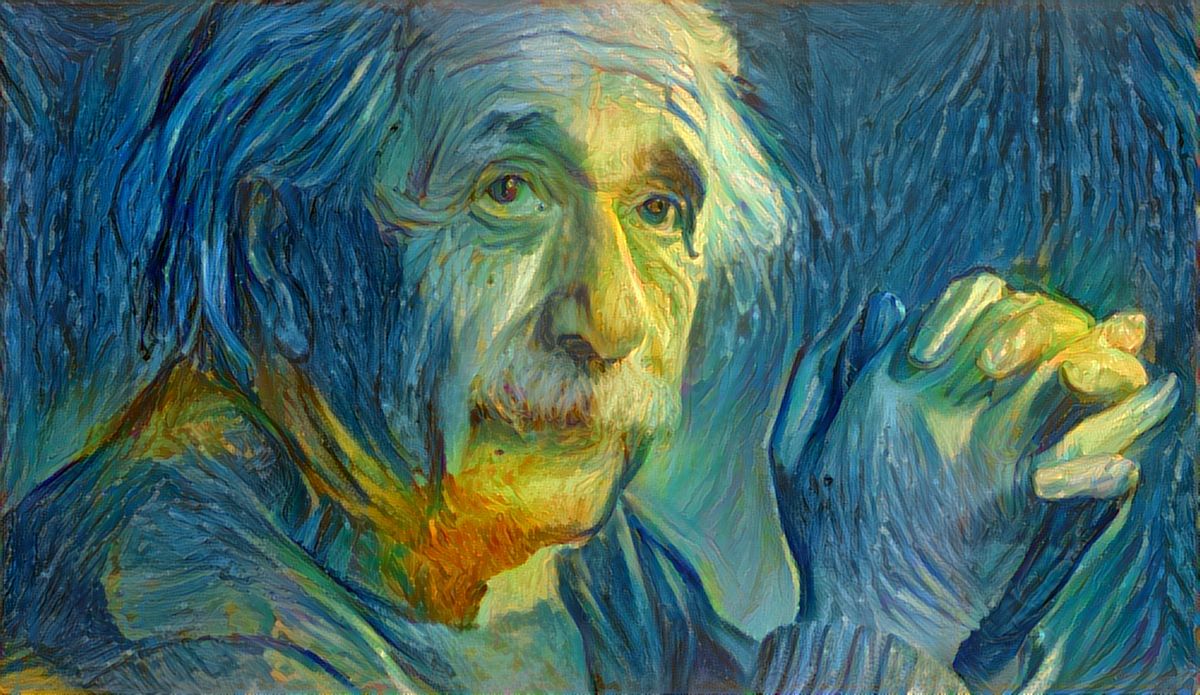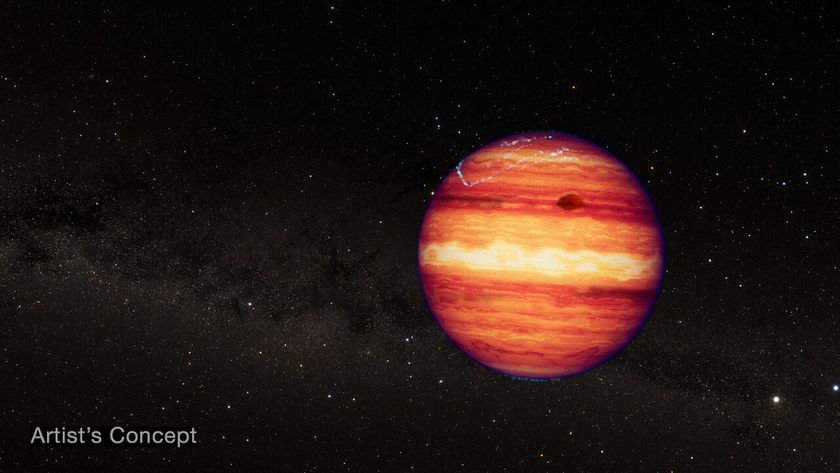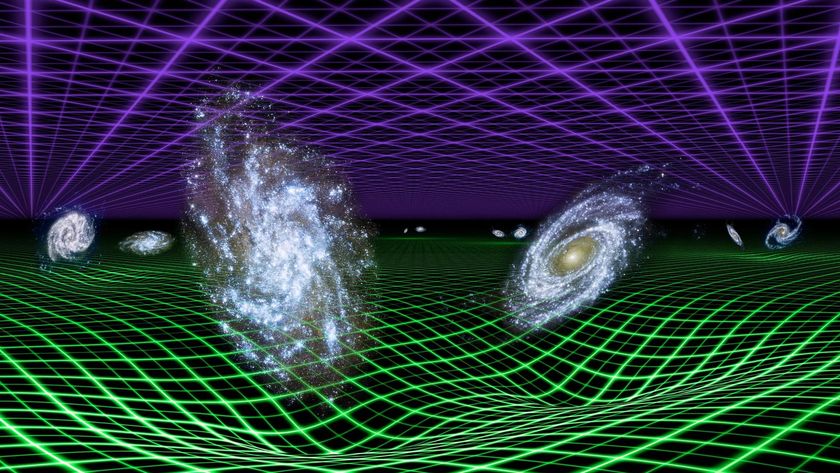Genius: Can Anybody Be One?

What makes a genius?
Perhaps for athletes, a genius is an Olympic medalist. In entertainment, a genius could be defined as an EGOT winner, someone who has won an Emmy, Grammy, Oscar and Tony award. For Mensa, the exclusive international society comprising members of "high intelligence," someone who scores at or above the 98th percentile on an IQ or other standardized intelligence test could be considered genius.
The most common definition of genius falls in line with Mensa's approach: someone with exceptional intelligence.
Making a genius
In his new science series "Genius" on PBS, Stephen Hawking is testing out the idea that anyone can "think like a genius." By posing big questions — for instance, "Can we travel through time?" — to people with average intelligence, the famed theoretical physicist aims to find the answers through the sheer power of the human mind.
"It's a fun show that tries to find out if ordinary people are smart enough to think like the greatest minds who ever lived," Hawking said in a statement. "Being an optimist, I think they will." [Mad Geniuses: 10 Odd Tales About Famous Scientists]
Optimism aside, answering a genius-level question does not a genius make — at least, not according to psychologist Frank Lawlis, supervisory testing director for American Mensa.
"The geniuses ask questions. They don't know the answers, but they know a lot of questions and their curiosity takes them into their fields," Lawlis told Live Science. "[They're] somebody that has the capacity to inquire at that high level and to be curious to pursue that high level of understanding and then be able to communicate it to the rest of us."
Sign up for the Live Science daily newsletter now
Get the world’s most fascinating discoveries delivered straight to your inbox.
You must statistically be a genius to qualify for Mensa, with a measured intelligence that exceeds 98 percent of the rest of the population. However, Lawlis said even these tests can exclude some of the most brilliant of thinkers.
"The way you put items together to test for intelligence is that you already know the answer," Lawlis said. "That's the whole point. You create questions that have real answers."
For instance, Albert Einstein would have likely done poorly on IQ tests, Lawlis said.
"It really comes down to thinking outside the box, and you really can't test that," Lawlis said. "When they take these tests, instead of directing their attention to the correct answer, they think of a jillion other answers that would also work, so consequently they get confused and do very poorly."
A genius's process
Consisting of a mixture of intelligence, creativity and contribution to society, genius is hard to pinpoint, saidDean Keith Simonton, a distinguished professor of psychology at the University of California, Davis.
In the Scientific American Mind magazine's special issue on genius, Simonton hypothesized that all geniuses use the same general process to make their contributions to the world.
They start with a search for ideas, not necessarily a problem in need of a solution. From this search, geniuses will generate a number of questions, and begin a long series of trials and errors. They then find a solution, for a problem others may not have even been aware of.
"Talent hits a target no one else can hit. Genius hits a target no one else can see," Simonton said, quoting the 19th-century German philosopher Arthur Schopenhauer.
"Exceptional thinkers, it turns out, stand on common ground when they launch their arrows into the unknown," Simonton said.
Inside the brain of a genius
In an attempt to "discern what combination of elements tends to produce particularly creative brains," psychiatrist and neuroscientist Nancy Andreasen at the University of Iowa used functional magnetic resonance imaging (fMRI), which measures brain activity by detecting changes associated with blood flow.
Andreasen selected the creative subjects from the University of Iowa Writers' Workshop, and a control group from a mixture of professions. The control group was matched to the writers based on age, education and IQ — with both test and control groups averaging an IQ of 120, considered very smart but not exceptionally so, according to Andreasen.
Based on these controls, Andreasen looked for what separated the creative’s brains from the controls.
During the fMRI scans of participants, the subjects were asked to perform three different tasks: word association, picture association and pattern recognition. The creatives' brains showed stronger activations in their association cortices. These are the most extensively developed regions in the human brain and help interpret and utilize visual, auditory, sensory and motor information.
Andreasen set out to find what else, in addition to brain processes, linked the 13 creatives’ brains.
"Some people see things others cannot, and they are right, and we call them creative geniuses," Andreasen wrote in The Atlantic, referring to participants in her study. "Some people see things others cannot, and they are wrong, and we call them mentally ill."
And then there are people who fit into both categories.
What Andreasen found is that there is another common mark of creative genius: mental illness.
Through interviews and extensive research, Andreasen discovered that the creatives she studied had a higher rate of mental illness, which included a family history of mental illness. The most common diagnoses were bipolar disorder, depression, anxiety and alcoholism. The question now is whether the mental illness contributes to the genius or if it's the other way around, she said.
In a study of the brain of one of the most famous geniuses in history, Einstein, scientists found distinct physical features, which may help to explain his genius, Live Science reported when the study came out in the journal Brain in 2012.
Previously unpublished photographs of the physicist's brain revealed that Einstein had extra folding in his gray matter, the part of the brain that processes conscious thinking, the study researchers found. His frontal lobes, the brain regions tied to abstract thought and planning, had particularly elaborate folding. [See Images of Albert Einstein's Brain]
"It's a really sophisticated part of the human brain," Dean Falk, study co-author and an anthropologist at Florida State University, told Live Science, referring to gray matter. "And [Einstein's] is extraordinary."
Be it high IQ, curiosity or creativity, the factor that makes someone a genius may remain a mystery. Though Mensa can continue to test for quantitative intelligence in areas such as verbal capacity and spatial reasoning, there is no test for the next Einstein, Lawlis said.
"I don't know anybody that could really predict this extremely high level of intelligence and contribution," Lawlis said. "That's the mystery."
Original article on Live Science.












